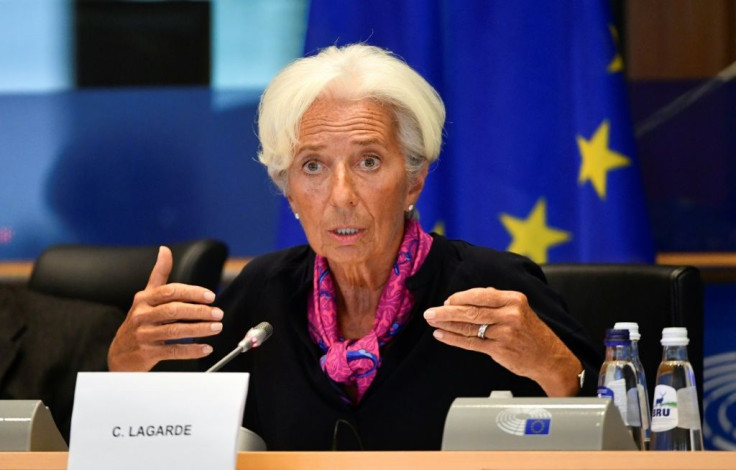Lagarde Sees Need For Continued Accommodative Policy

The European Central Bank should continue its accommodative policy for the foreseeable future to promote price stability and bring inflation up to optimal levels, incoming ECB President Christine Lagarde said Wednesday.
But Deutsche Bank AG CEO Christian Sewing warned more money easing by the ECB will have “grave side effects” and UBS CEO Sergio Ermotti said negative rates hurt social systems and savings rates while James Bullard, president of the St. Louis Federal Reserve, urged a half-point cut to U.S. interest rates at the Fed’s next meeting in two weeks.
Lagarde, speaking at a hearing before the European Parliament, said the European economy is facing “near term risks related to external factors.” As a result, she said she agrees with the bank’s board of governors that the accommodative policy should continue for a “prolonged period of time.” The ECB is expected to cut its deposit rate next week, at the same time restarting its asset purchase program in a bid to boost inflation to an annual 2 percent level.
The ECB ended its 2.6 trillion-euro quantitative easing program less than a year ago but changed course in light of Germany’s slide toward recession and the U.S.-China trade war, which has slowed global growth.
“They haven’t got any choice ... otherwise they would be saying, ‘We are not going to fulfill our mandate.’ But not many believe inflation is likely to pick up anytime soon, particularly given the state of the world economy and the euro zone economy,” Andrew Kenningham, chief Europe economist at Capital Economics, told Reuters.
Lagarde, however, pushed hard for continued accommodative policies.
“The euro economy faces some near-term risks, mainly related to external factors … and inflation remains persistently too low and certainly below the objective,”she said. “I therefore agree with the view of the governing council that the highly accommodative policy is warranted for a prolonged period of time in order to bring inflation to the famous below but close to 2 percent.”
She noted, however, questions remain and warned the impact of highly accommodative policies need to be evaluated continuously and the “concerns of the people” need to be taken into account.
Lagarde, who succeeds Mario Draghi as head of the ECB, said European economies should take steps to spur growth, if they can do so without breaking budget rules.
The St. Louis Fed’s Bullard told CNBC with bond yields falling to record lows, the U.S. Federal Reserve's current rate policy appears to be out of line and aggressive steps need to be taken, dropping the current rate as much as 50 basis points at the Sept. 17-18 meeting. He said the Fed’s current target policy rate of 2 percent to 2.25 percent exceeds all Treasury yields.
© Copyright IBTimes 2025. All rights reserved.






















